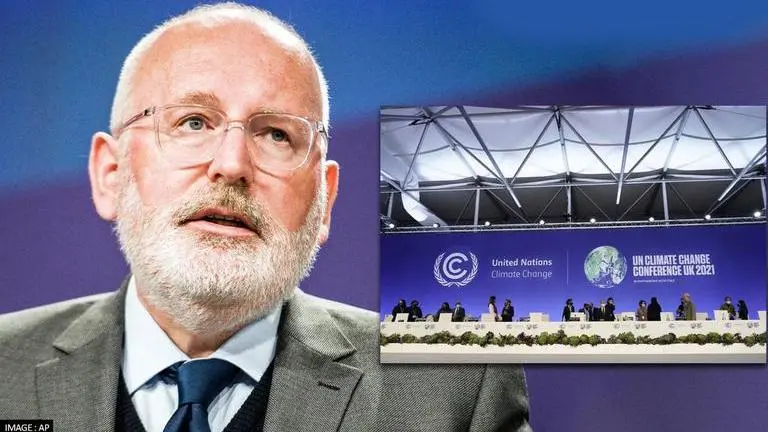Updated 13 November 2021 at 17:19 IST
COP26 Summit: Leaders warn of the severe consequences if climate summit fails
As countries are battling over issues to obtain a prospective agreement in the COP26 summit, delegates were informed about the consequences if conference fails.
- World News
- 3 min read

As negotiators from different countries are battling over the final issues to obtain a prospective agreement in the COP26 climate summit, delegates were informed that if this conference fails, babies born today will be struggling for basic food and water by the year 2050. As per the Guardian, key leaders are stepping into the constructive discussions as they believed this would be the last time to encourage one another to collaborate in the interests of people throughout the world who are highly endangered by the climate change issue.
Quoting the Vice-President of the European Commission Frans Timmermans, the Guardian reported, “If we fail (my one-year-old grandson]) will fight with other human beings for water and food. That’s the stark reality we face. So, 1.5C is about avoiding a future for our children and grandchildren that is unlivable.”
Furthermore, Alok Sharma, the President of COP26, announced that a fresh proposal will be released early on Saturday, following which it would be reviewed, discussed, and debated. Sharma predicted that the meeting will wrap up by Saturday afternoon.
UK has released 2nd proposal urging nations to cut on coal power & fossil fuel subsidies
The United Kingdom, which is hosting the conference, has circulated a second proposal for the result earlier on Friday. The second proposal included a resolution urging the nations to begin phasing out "unabated" coal power and "inefficient" fossil fuel subsidies. Further, a request has been made to nations to convene in the future negotiations for next year to enhance their national strategies on climate change issues and greenhouse gas emissions reduction plans.
Advertisement
In addition to this, the negotiations are now focused on whether and how nations will alter their national plans which are termed as nationally determined contributions (NDCs). According to research released previously this week by the Climate Action Tracker, the existing NDCs which are provided by governments in Glasgow are showing the result of at least 2.4 degrees Celsius of warming, which is a terrible level.
Meanwhile, some nations have argued that updating NDCs by next year would be in violation of the Paris Agreement, which only calls for such modifications after every five years. However, the three developers of the Paris agreement, Laurent Fabius, the French foreign minister; Laurence Tubiana, his chief diplomat; as well as Christiana Figueres, the UN climate chief during the present time, told the Guardian that the pact can permit for a faster return before the scheduled time and urged nations to come back for negotiating in next year with modifications in alignment with 1.5 C.
Advertisement
(Image: AP)
Published By : Anwesha Majumdar
Published On: 13 November 2021 at 17:19 IST
